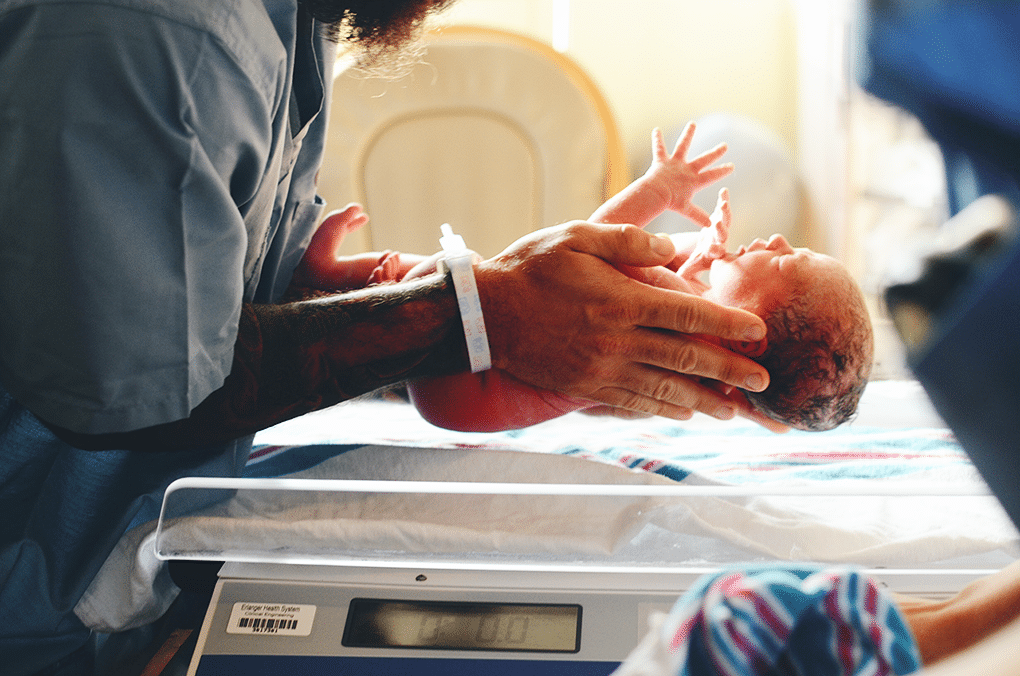$19 Million Verdict in Infant’s Wrongful Death
A Cook County jury recently awarded over $19 million to the family of a ten-month-old infant whom the jury determined died as the result of obstetrical malpractice.
Updated on
The Facts of the Case
The case began with the infant’s birth in 2016. During labor, the child’s mother received Cervidil, a medication designed to promote “cervical ripening.” Cervidil is given vaginally to soften the cervix to help labor and birth proceed.
While Cervidil is indicated for some patients, it is directly contraindicated for patients undergoing a vaginal birth after cesarean (VBAC). The infant’s mother was such a patient.
After a difficult and medically complex labor, the infant was born via cesarean section. The newborn suffered acute brain damage, and his mother required intensive care treatment for extreme blood loss following the birth. Mother and child were separated for some time due to their respective injuries and the need for intensive medical treatment.
The infant’s brain damage ultimately proved fatal approximately ten months after his birth. At trial, the infant’s family claimed that obstetrical malpractice and negligence on the part of St. Bernard’s Hospital resulted in the infant’s injury and death.
The family was represented by Matt Patterson and Jack Beam of the Beam Legal Team – a Chicago based law firm that represents families in a wide range of birth injury cases.
Building a Case for Negligence on Multiple Fronts
In this case, the negligence of multiple medical providers contributed to the eventual outcome for the infant’s mother. At trial, plaintiffs presented evidence that the infant’s mother’s obstetrician maintained privileges at Saint Bernard even after signing a consent order for suspension from the practice of medicine.
Although the obstetrician was present at the hospital the day of the birth, plaintiffs argued, she did not examine or speak to the infant’s mother. Rather, she put in an order for Cervidil without considering the patient’s VBAC history.
The plaintiff also argued that nurses at Saint Bernard administered the Cervidil without considering the patient’s history of VBAC. The infant’s mother noted that no one checked on her despite the fact that she pressed the call button numerous times, which prevented her from reporting symptoms that included extreme pain.
The infant’s mother was seen by a second doctor to no avail; a third physician eventually performed the emergency cesarean section.
In this case, several doctors as well as Saint Bernard Hospital itself were potentially liable for negligence. Unwinding the facts of such a case takes effort and often requires the assistance of one or more expert witnesses. Doing so is often necessary, however, to communicate to the jury the full impact of what happened and its consequences.
Takeaways for Attorneys
Many formulations of the “standard of care” expressed in state laws indicate that the standard compares what medical providers did in a given case to what a similarly-situated provider would have done. Some defendants use this verbiage to argue that because they lack resources, the standard of care should be less stringent for them than it would for a provider with greater resources.
Saint Bernard Hospital attempted such an argument in this case. At trial, Saint Bernard Hospital argued that its status as a small hospital in a low-income community should be considered in determining the standard of care. The hospital made the claim “that it’s a small, poor hospital in a small, poor community and this is the kind of care patients should expect,” said Matt Patterson, an attorney for the plaintiff.
Patterson notes that the jury rejected Saint Bernard’s argument that small, poor hospitals should be held to a lower standard of care than medical facilities with more resources. Instead, said Patterson, the jury “sent a powerful message with this verdict: that everyone deserves appropriate, quality care, regardless of what community they’re in.”
Attorneys handling similar cases can address similar arguments by establishing a baseline of care required from any provider engaged in the same practice or procedures, regardless of that provider’s resources. Juries like the one in the Cook County case are likely to be open to arguments that, as Patterson says, “everyone deserves appropriate, quality care.”
About the author
Dani Alexis Ryskamp, J.D.
Dani Alexis Ryskamp, J.D., is a multifaceted legal professional with a background in insurance defense, personal injury, and medical malpractice law. She has garnered valuable experience through internships in criminal defense, enhancing her understanding of various legal sectors.
A key part of her legal journey includes serving as the Executive Note Editor of the Michigan Telecommunications and Technology Law Review. Dani graduated with a J.D. from the University of Michigan Law School in 2007, after completing her B.A. in English, summa cum laude, in 2004. She is a member of the Michigan State Bar and the American Bar Association, reflecting her deep commitment to the legal profession.
Currently, Dani Alexis has channeled her legal expertise into a successful career as a freelance writer and book critic, primarily focusing on the legal and literary markets. Her writing portfolio includes articles on diverse topics such as landmark settlements in medical negligence cases, jury awards in personal injury lawsuits, and analyses of legal trial tactics. Her work not only showcases her legal acumen but also her ability to communicate complex legal issues effectively to a wider audience. Dani's blend of legal practice experience and her prowess in legal writing positions her uniquely in the intersection of law and literature.
Subscribe to our newsletter
Join our newsletter to stay up to date on legal news, insights and product updates from Expert Institute.
Sign up nowA Sample Voir Dire: How To Qualify An Expert Witness
Download free white paperChallenging Opposing Experts: Advanced Research Techniques
Download free white paperCross Examining Expert Witnesses: The Ultimate Guide
Download free white paper
Subscribe to our newsletter
Join our newsletter to stay up to date on legal news, insights and product updates from Expert Institute.



